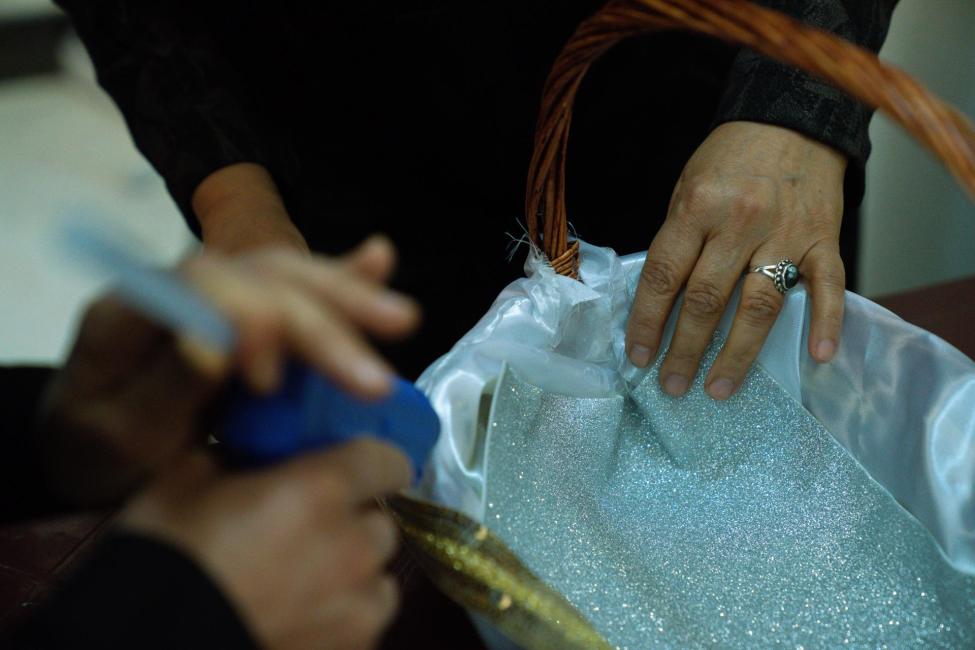-
Who We Are
WHO WE AREThe International Organization for Migration (IOM) is part of the United Nations System as the leading inter-governmental organization promoting since 1951 humane and orderly migration for the benefit of all, with 175 member states and a presence in over 100 countries. IOM has had a presence in Iraq since 2003.
About
About
IOM Global
IOM Global
-
Our Work
Our WorkAs the leading inter-governmental organization promoting since 1951 humane and orderly migration, IOM plays a key role to support the achievement of the 2030 Agenda through different areas of intervention that connect both humanitarian assistance and sustainable development. Across Iraq, IOM provides a comprehensive response to the humanitarian needs of migrants, internally displaced persons, returnees and host communities.
Cross-cutting (Global)
Cross-cutting (Global)
- Data and Resources
- Take Action
- 2030 Agenda
The experience of displacement – losing a home, losing a community, for many, losing everything – can have a profound, negative impact on individuals’ relationships with themselves and others.
44-year-old Ahlam experienced this first-hand when she, her husband and her five children returned home from displacement to Fallujah, Anbar Governorate, in 2017.
Ahlam continues: "Because of these difficult experiences, my psychological health was affected – and it went from bad to worse. Displacement and its painful events greatly affected the whole family, including my children. I had difficulty raising them, especially my eldest son.”
Her eldest had a hard time dealing with displacement and return and, struggling to manage her own emotional and material circumstances, Ahlam had a hard time connecting with and supporting him. They both felt isolated, and as Ahlam searched for ways to support her household as the single breadwinner – her husband is blind and struggles to find employment – her son was searching for ways to leave it.
"I was nervous and cried on my own a lot. I would burst into tears because I couldn’t bear everything any longer. My husband needed great care, and I felt like I was about to lose my son. There were also the anxiety attacks,” she reveals.
When she heard from her neighbors about IOM Iraq’s cash-for-work sewing programming, Ahlam registered in the hopes of developing marketable skills and making some money to support her family.
“I did not have any knowledge of sewing and learned a lot from the trainers, alongside my female colleagues. I have experience and skills now, and also benefited financially from the sewing workshop. I spent most of the money I earned through the workshop on doctors because my husband suffers from joint problems and muscle spasms,” she says.
"However, I was still suffering from problems in my home, and they were reflected in my personality, as well as in my relationship with my eldest son, which was not good. He neglected his studies because of his psychological challenges, and we had constant problems. This really affected the atmosphere of the house,” Ahlam explains.
“After the sewing workshop, I joined the psychosocial support sessions – we learned a lot of things, such as stress and time management, problem-solving skills, teamwork and conflict resolution skills, all of which contributed positively to my psychological state and my ability to deal with problems.”
IOM Iraq integrates mental health and psychosocial support (MHPSS) services into existing livelihood interventions as part of its MHPSS and Livelihood Integration (MLI) approach, aimed at helping individuals build positive coping mechanisms to apply at work and in other homes.
"I learned how to manage time, as my schedule was scattered between delivering the children to school, going to [the IOM] sessions and taking care of household matters, like cleaning and cooking. I learned about time management methods and techniques that have since helped me better organize my daily schedule,” Ahlam goes on.
“But the sessions gave me more than just the psychological benefit,” she continues. “I was afraid that I was going to lose my eldest son forever – I was at a loss dealing with him, but I worked on implementing all the ideas that I got from the sessions, and their impact was positive.”
She tells us: “I am very happy to have restored my relationship with my son because he is at a critical age, and he was trying to move out of the house. But I got my son back, and my relationship with him is good now. I learned through dialogue to coexist better with him.”
Better able to manage the present, Ahlam now looks to the future with ambitions to open her own sewing shop.
For more on MLI, please click here: https://iraq.iom.int/sites/g/files/tmzbdl1316/files/documents/mhpss-and-livelihood-integration-mli-manual-en.pdf
This assistance was made possible with support from the Government of Germany, through KfW.




